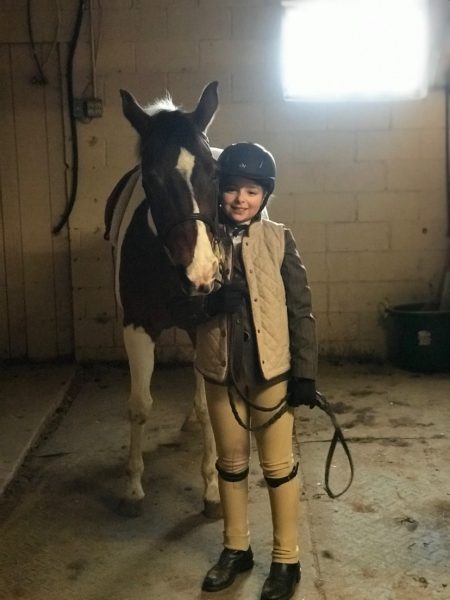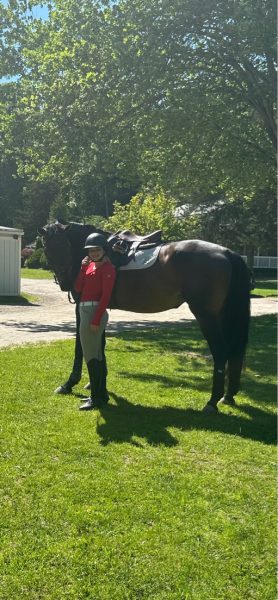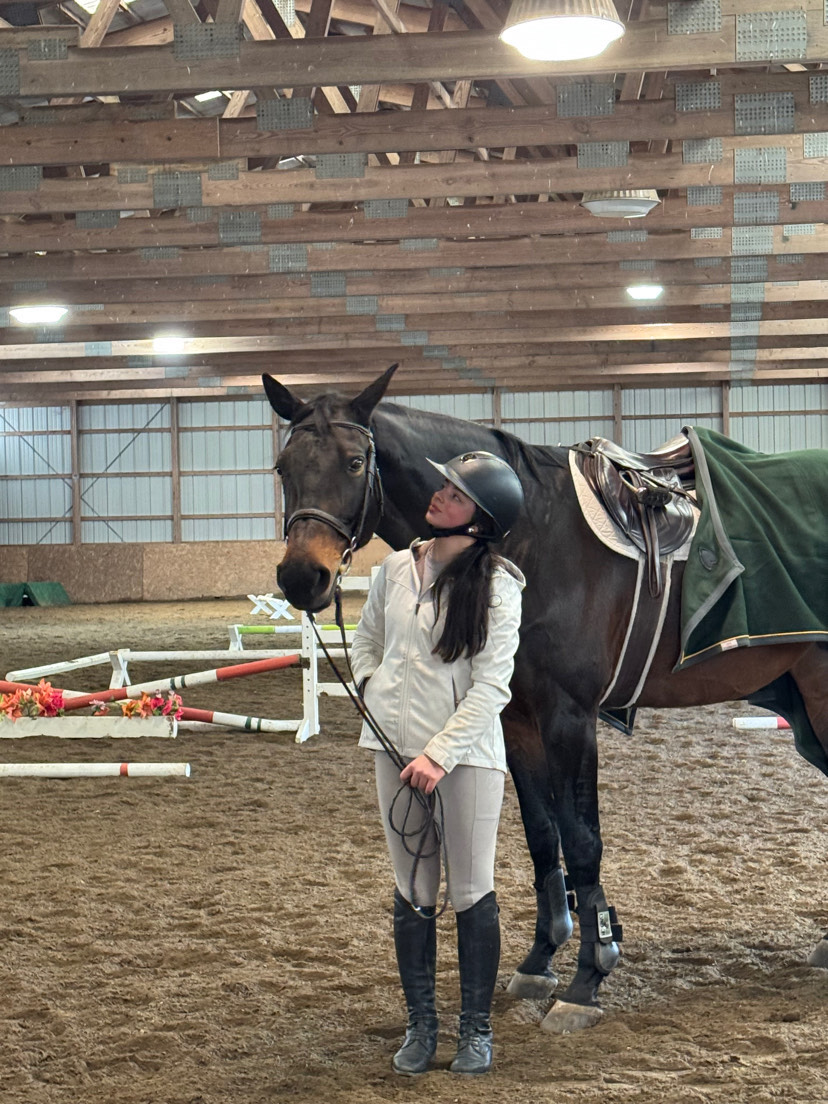 Gabby Ferraiolo remembers entering her horse’s stall and getting the horse ready to ride. Feraiolo has been riding since she was seven years old. This was a common occurrence for Ferraiolo, she attends to the barn almost every day. Suddenly, her horse spooked at a shovel falling off the hook, bucking and kicking her in the head. The first thing she noticed was her pounding headache and the feeling of throwing up. Two hours later, she would be in the Westbrook, CT, emergency room with a concussion.
Gabby Ferraiolo remembers entering her horse’s stall and getting the horse ready to ride. Feraiolo has been riding since she was seven years old. This was a common occurrence for Ferraiolo, she attends to the barn almost every day. Suddenly, her horse spooked at a shovel falling off the hook, bucking and kicking her in the head. The first thing she noticed was her pounding headache and the feeling of throwing up. Two hours later, she would be in the Westbrook, CT, emergency room with a concussion.
Although it was new for her, concussions are nothing new in the world of athletics.
Each year, 3.8 million concussions happen due to sports-related injuries. Concussions happen when the brain suddenly jolts or is impacted by a violent movement, which is the brain moving within the skull colliding with its bony interior.
During a concussion, you may feel dizzy, have nausea, sensitivity to light and noise, or vomiting. You may also experience difficulty concentrating, temporary memory loss, confusion, and slowed thinking. These symptoms should only last 10 days, but a small percentage of people sustain post-concussion syndrome.
Post-concussion syndrome is a symptom of a mild traumatic brain injury. This condition lasts longer than three months. Symptoms include headaches, dizziness, and trouble with concentration and memory.
 For freshman Ferraiolo, she immediately felt nauseous, dizzy, and had a pounding headache; luckily, she did not end up unconscious. “I remember crying out for my mom because my head was pounding.”
For freshman Ferraiolo, she immediately felt nauseous, dizzy, and had a pounding headache; luckily, she did not end up unconscious. “I remember crying out for my mom because my head was pounding.”
Ferraiolo ended up going to the emergency room in Westbrook, CT. Gabby stated, “I was gripping my mom’s arm when we walked into the ER because I thought I was going to pass out.”
In the emergency room, the doctor tested her balance and eyesight. They left the emergency room with information from the doctor saying to lie in a dark room, no screens, and take it very easy. Feraiolo was out of sports for two weeks.
“Having to take a break from horseback riding devastated me because it’s something that I genuinely love to do,” Feraiolo explained.
Hannah Vieira, the athletic trainer at Morgan High School, plays the role of overseeing all injuries, including concussions. Vieira explained that one of the main reasons people who are concussed stay out of sports is called second impact syndrome, from a concussion. If you get hit in the head again, it could lead to more serious problems, and activity can increase your symptoms and prolong them as well, which can affect your brain functioning.
Vieira explained, “We also do it just in case there is a chance that you do have a brain bleed or something like that.”
Morgan High School’s concussion protocol is to follow up with the athletes primary care doctor for another evaluation. Once they are asymptomatic, they take the impact test to reach their baseline. Once they reach their baseline, it takes five days to return to play. Vieira stated, “So you start with like, 15 minutes a bike, 30 minutes a bike, non-contact practice, contact practice, then all activity.”
During her recovery time, she became very sad and felt a little lonely at times because she had to stay bed-bound for 2 weeks. “Having to stay in my bed took a little bit of toll on my mental health.”
Studies show that a concussion can worsen existing mental health disorders or create new ones. Some of these disorders can be anxiety, depression, mood swings, anger, or post-traumatic stress disorder.
After two weeks, she returned to the stable. Some may think this would be an experience that would affect her in the long run by being scared of horses, but she came back better than ever, extremely excited to get back on the horse. Ferraiolo said, “I remember walking back into the barn having butterflies in my stomach because I missed riding so much.”



